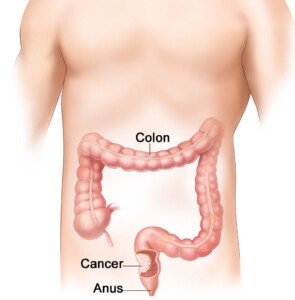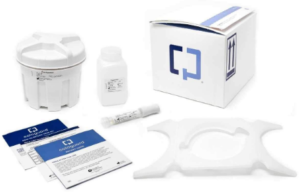
So many people are scared of seeing the so-called pencil-thin stools—even if the day before, their bowel movements were thick or fat.
“The reason that a stool changes from wide and then thin can be caused by what a person drank, ate or what environment they have moved to,” says Sander R. Binderow, MD, FACS, FASCRS, with Atlanta Colon & Rectal Surgery.
He continues, “It is an overall non-specific variable. If a person has a tumor, the stool can become thinner from obstruction, but this is NOT common.
“Colorectal [colon] cancer wouldn’t cause the thickness of stool to change, but a tumor in the lower anus or rectum could.”
How does cancer make stools come out thin?
BMs come out the anus, which is of a certain width range when normal, allowing the stool matter to come out.
If there’s a cancer mass near the anus or rectum, then the bowel movements that are on the way out would have to go through a narrower pathway or channel, as the tumor would be obstructing the pathway.
The stools would then be compressed into a thinner diameter.
It’s the same principle when the opening of a tube of toothpaste becomes obstructed by dried, caked-on toothpaste. a thin output.
You squeeze the tube hard, and the paste comes out with difficulty — and it’s much narrower than normal, because the hole that it comes out of is partially blocked by the dried toothpaste.
Dr. Binderow says, “Most persons will see their stools vary in thickness throughout their life, which is considered normal.
“Consistency of the stool and size are not as important as some [people] place on these changes.
“If a person is concerned, they should always discuss with their physician before drawing conclusions and to know what is normal and what to expect moving forward.”
Fear of Colon Cancer

With the increasing publicity about colon cancer, there’s an increase in anxiety over this in people who have taken to inspecting their stools.

Cologuard is a non-invasive screening test for colon cancer.
Cologuard uses the latest advances in bowel movement DNA technology, thus detecting the altered DNA from abnormal cells in the stool sample.
These cellular abnormalities may be associated with colon cancer or precancer.
 Dr. Binderow performs minimally invasive, robotic and laparoscopic surgery for Crohn’s disease, ulcerative colitis, colon cancer and other colorectal conditions. Adept at routine procedures, he also sees patients with complex, atypical maladies.
Dr. Binderow performs minimally invasive, robotic and laparoscopic surgery for Crohn’s disease, ulcerative colitis, colon cancer and other colorectal conditions. Adept at routine procedures, he also sees patients with complex, atypical maladies.
 Lorra Garrick has been covering medical, fitness and cybersecurity topics for many years, having written thousands of articles for print magazines and websites, including as a ghostwriter. She’s also a former ACE-certified personal trainer.
Lorra Garrick has been covering medical, fitness and cybersecurity topics for many years, having written thousands of articles for print magazines and websites, including as a ghostwriter. She’s also a former ACE-certified personal trainer.
.
Top image: ©Lorra Garrick
IBS (Irritable Bowel Syndrome) or Colon Cancer Symptom Comparison
Hemorrhoid Blood vs. Colon Cancer Blood: Is There a Difference?













